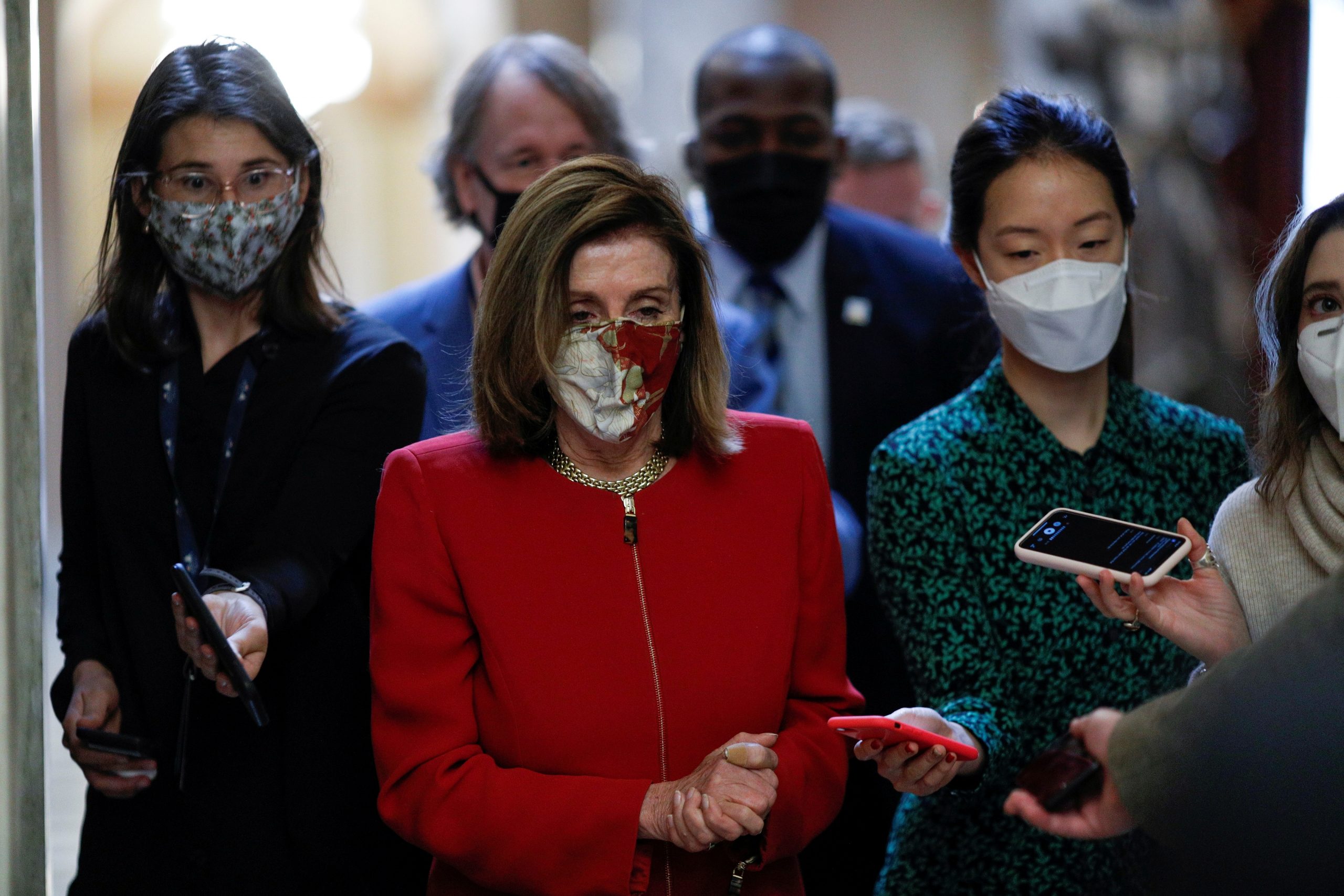The U.S. Congress will vote this week on a one-week stopgap funding bill to provide more time for lawmakers to reach a deal on COVID-19 relief and an overarching spending bill to avoid a government shutdown.
Lawmakers in the Republican-led Senate and Democratic-run House of Representatives need to enact a government spending measure by Friday, when funding for federal agencies is set to expire. House Speaker Nancy Pelosi and Senate Majority Leader Mitch McConnell hope to attach long-awaited COVID-19 relief to a broad $1.4 trillion spending bill.
The pandemic has killed 282,000 people in the United States, thrown millions out of work and crippled businesses.
McConnell and House Majority Leader Steny Hoyer said separately on Monday that both chambers would vote this week on a measure to allow an additional week of talks.
“I am disappointed that we have not yet reached agreement on government funding,” Hoyer said in a tweet. He said the House would vote on Wednesday on measure to keep the government open for a week while talks continue.
McConnell did not specify when the Senate would take up the stopgap government spending measure. He has pushed for a new coronavirus aid package of about $500 billion, while a bipartisan proposal that emerged a week ago totaled $908 billion.
“We have seen some hopeful signs of engagement from our Democratic colleagues. But we have no reason to think the underlying disagreements about policy are going to evaporate overnight,” McConnell said on the Senate floor.
Arguing for a “targeted” package, McConnell said lawmakers agree on three points – extending unemployment benefits, helping small businesses and funding vaccines. He said lawmakers should “make law in the many places where we have common ground” and drop other demands.
A few minutes later on the Senate floor, Schumer said he was tired of hearing the “same old song” from McConnell. Schumer and Pelosi last week embraced the emerging $908 billion bipartisan framework as a basis for talks, abandoning the Democrats’ months-long insistence on at least double that amount.
A group of House and Senate lawmakers had been expected as early as Monday to issue a text of the bipartisan COVID-19 aid bill, which would provide economic support in the early days of President-elect Joe Biden’s administration beginning on Jan. 20.
But lawmakers and their staffs failed to finalize it over the weekend. They were stalled on provisions to help state and local governments, which Democrats want, and protect businesses from coronavirus-related lawsuits, a top Republican priority.
There was an upbeat note, however, from the Trump administration.
“We are moving in the right direction, I think. We are getting closer,” White House economic adviser Larry Kudlow said in an online interview with The Washington Post.
‘DOUBLE-DIP RECESSION’ RISK?
The U.S. Chamber of Commerce said in a memo to Congress that failure to enact relief would risk a “double-dip recession” – when a recession is followed by a brief recovery and then another recession – that would permanently shutter small businesses and leave millions of Americans with no means of support.
The same issues have blocked coronavirus relief legislation for months, leading to mounting frustration among business owners, unions, ordinary Americans and state and local government officials.
Lawmakers enacted $3 trillion in aid earlier this year but have not been able to agree on fresh relief since April.
A group of emergency aid programs implemented in response to the pandemic, including additional unemployment benefits and a moratorium on renter evictions, is set to expire at the end of December.
(Reporting by David Morgan and Susan Cornwell; Additional reporting by Lisa Lambert and David Lawder; Editing by Scott Malone, Rosalba O’Brien, Peter Cooney and Cynthia Osterman)

























 Continue with Google
Continue with Google